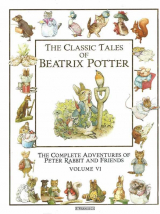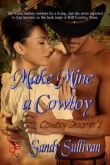
Текст книги "The Classic Tales. Volume VI"
Автор книги: Beatrix Potter
Жанр:
Сказки
сообщить о нарушении
Текущая страница: 12 (всего у книги 12 страниц)
Glossary
[01] Bedding chest,
Panelled chests with heavy lids were in use before chests of drawers.
[02] Borran,
A fox’s hole under rocks.
[03] Bour-tree bush,
Elderberry bush.
[04] Bridewain,
Wedding festivities and gifts.
[05] Cairngorm,
A Scotch crystal found in the Cairngorm mountains.
[06] Cams,
Slaty top stones of a wall set on edge like a comb.
[07] Cart-kist,
Body of cart, literally ‘cart-chest’.
[08] Chimney,
A rift or gully, up the perpendicular face of the crag.
[09] Colludie Stone,
A water-worn stone with a natural hole through it.
[10] Coppy stools,
Milking stools.
[11] Cragged,
Fallen over a crag.
[12] Early numbers,
The old manner of sheep counting.
[13] Ellers,
Alders.
[14] Foisty,
Damp and dusty; applied to hay. (Fusty, musty.)
[15] Grassings,
Hill pastures which often retain their Scandinavian names to this day.
[16] Heaf,
A tract of unfenced pasture where a sheep is accustomed to graze; as the high fells are not divided by fences it is important to have heafed flocks which will not stray from their own land.
[17] Herb,
Vegetation; grass is a word seldom used by shepherds.
[18] Herdwick,
A distinct mountain-breed of sheep peculiar to the Lake District.
[19] Hoggie-lambies,
Lambs just weaned.
[20] Hoppus,
Hoppus and measurements – old Lake Country complicated tables for reckoning the quantity of timber in trees.
[21] Hull,
A farm building.
[22] Hunting,
The Lake foot packs are supported by the sheep farmers in order to keep down the depredations of foxes amongst the lambs. The hound puppies on walk are reared on the farms, and returned to their homes when the hunting is over for the season. It frequently happens that a few hounds are benighted after a long chase. They take themselves to the nearest farm where they are hospitably received and cheerfully welcomed. Next morning they go on their way again.
[23] Intake,
A mountain pasture taken in or enclosed from the open fell.
[24] Keld,
A spring of water.
[25] Key-bit,
Ear-mark on sheep.
[26] Langle,
To tie a piece of sacking from a fore leg to the opposite hind leg in order to prevent sheep from jumping walls. [The practice is now illegal.]
[27] Lish,
Active, supple, lively.
[28] Lonnin,
A lane.
[29] Lug,
Ear. As thin as a cat’s lug – extremely thin.
[30] Menseful,
Sensible or provident. Mindful.
[31] Middenstead,
A place for farmyard manure.
[32] Mowdie-warps,
Moles.
[33] Parrocks,
Paddocks.
[34] Peet,
Signifies partially blind (i.e. one-eyed).
[35] Pissamoor hills,
Ant hills.
[36] Pit-steads,
Charcoal burner’s hearth.
[37] Plash,
Fall of rain (i.e. splash).
[38] Ridged,
Through countless generations the sheep have worn tracks along the hills, not unlike the lonely Roman Road along the summit of the mountain called High Street.
[39] Ring-widdie,
A double ring shaped like a figure 8. One ring runs up and down an iron rod attached to the cow’s stall; the other passes through the halter.
[40] Rose comb,
A thick comb of many points.
[41] Rush,
A small avalanche of stones, snow or rock.
[42] Sele bushes,
Willows.
[43] Shelf,
A ledge on the crag.
[44] Shippon,
Cowshed.
[45] Skeerily,
Warily. (Scarily?)
[46] Snigging,
To snig or snigging – to drag a tree along the ground with a horse and chain. (In the American Midwest, called snagging.)
[47] Snod,
Comfortable, snug.
[48] Stirk,
Yearling bullock or heifer.
[49] Stone-men,
The ancient inhabitants of the Lake District had sheep. A fragment of woollen material has been found in a stone barrow or burial place.
[50] Taed-pipes,
Water horse-tail – an undesirable plant.
[51] Tailed and marked,
Lambs have their owner’s mark put on with tar or red paint and their tails cut when they are about two weeks old.
[52] Tarrie woo’,
Tarry wool. Fleeces of the hill sheep are water proofed with greasy preparation, on which is put a distinguishing Tar mark.
[53] Thivel,
A smooth wooden stick used for stirring a pot.
[54] Twinter,
A young sheep once shorn, 16 months old.
[55] Two-shear,
A twice shorn sheep 28 months old.
[56] Uveco,
A cattle food prepared from maize corn.
[57] Wagoners,
Lumber-men.
[58] Webster,
Hand loom weavers.
[59] Widdershins,
Contrary way. Counter-clockwise.
[60] Wilf,
The old name for willow. Wilfin is the plural of Wilf.
[61] Woodmongers,
Merchants who buy and sell timber.








